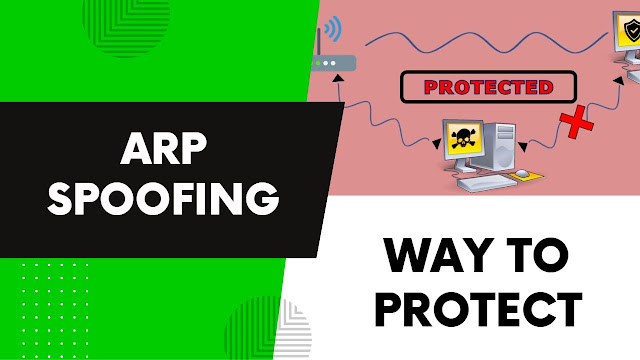If you want your network to be secure from the threat of ARP Attacks, the best
plan is a combination of the below-mentioned prevention methods. There are
many methods available on the Internet, and each has its own positives and
negatives. The most common and effective methods are listed below.
To know about ARP Poisoning,
Click Here!
The prevention methods tend to have flaws in certain situations, so if active
detection tools are in place as well, then you will know about ARP poisoning
as soon as it begins.
Methods
Encryption
When a web request is made, it uses a structure of requests and responses
for effective communication between clients and servers. The message sent
by a client to the server is known as an HTTP request. HTTP means
HyperText Transfer Protocol. The request and
response, in this case, are in plain text, which means whomsoever is the
man in the middle can read everything like websites visited, login
credentials, and card details that are sent to the server. To overcome
this issue, a revised protocol of HTTP is released which is known as
HTTPS, which stands for HyperText Transfer
Protocol Secure. HTTPS encrypts the request and response.
So, if someone is the man in the middle cannot see anything apart from
gibberish.
Most websites now are over HTTPS but if someone is in the middle of your
connection or in other words Man in the Middle, an attacker can degrade
the service from HTTPS to HTTP to read the gibberish. So to ensure that no
one does that, you can install a browser Extension. The extension will
make sure your connection is over HTTPS.
The Extension is HTTPS Everywhere, just search for the extension
continued by your browser name. After installing the extension. Click on
the extension and switch on the below-mentioned options.
If the server does not have HTTPS i.e. SSL certificate. The HTTPS
Everywhere extension will display a message something like below. Do not
worry it is not a problem or error, just choose one from the available
option. Opening an insecure page means the extension will remember
your choice and will not show a warning every time you open this site. But
if you choose the Open insecure page for this session only will open the page as HTTP for only this session.
VPNs - Virtual Private Network
According to Wikipedia, A virtual private network (VPN) extends a
private network across a public network and enables users to send and
receive data across shared or public networks as if their computing
devices were directly connected to the private network. Applications
running across a VPN may, therefore, benefit from the functionality,
security, and management of the private network.
In simpler words, if VPN is set up for your device, the connection will
be sent to that Virtual Network before sending it to the server you
requested for. And the server will not use your IP, the virtual
network's IP will be visible and also all the connections between your
device and the VPN are encrypted so no one can read that message.
To know more about the advantages and disadvantages of VPNs - Click Here
We hope this helps. If any suggestions or doubts you can add a comment and
we will reply as soon as possible.




%20Cover.jpg)
%20Cover.jpg)



No comments:
Post a Comment